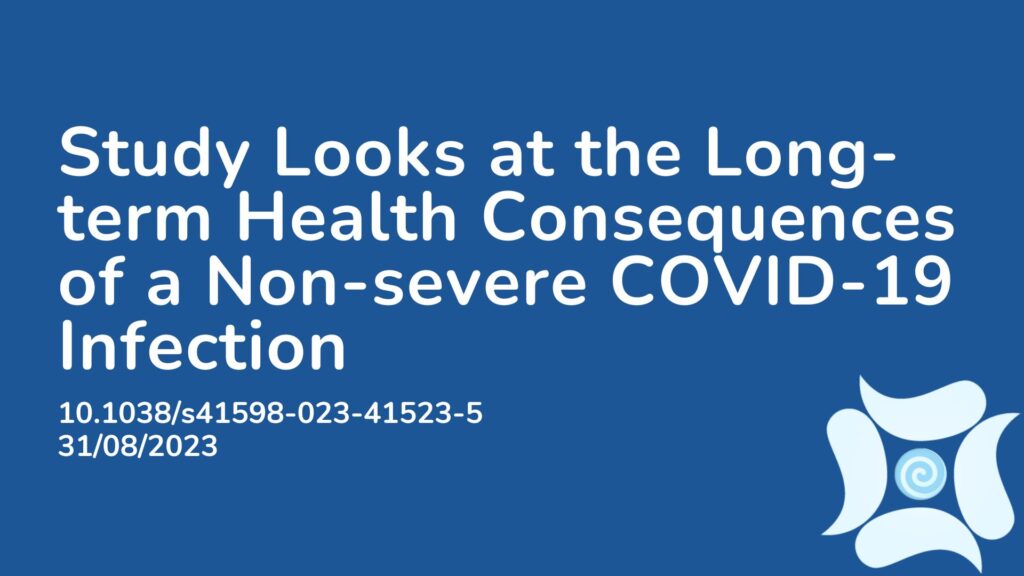Summary:
The COVID-19 virus has affected millions globally and has resulted in numerous deaths. This virus has shown that it can impact various aspects of someone’s health, not just the respiratory system. Studies have shown both short-term and long-term health consequences including metabolic abnormalities in severe cases of COVID-19. However, there is limited information on how non-severe COVID-19 impacts metabolic and overall health. This analysis aimed to investigate the prevalence of long-term metabolic issues in non-severe COVID-19 patients. The study followed 600 individuals for 3-6 months after recovery from non-severe COVID-19 symptoms. The results showed that the prevalence of metabolic abnormalities were 26.0% for a higher body-mass index, 43.2% for higher glucose levels, 40.5% for poorer cholesterol levels, 19.1% for decreased liver function and and 14.8% more signs of inflammation. Some factors that were associated with a reduced risk of these abnormalities included being female and receiving at least three doses of the COVID-19 vaccine. These findings detail the potential long-term metabolic consequences of the COVID-19 virus and emphasize the importance of healthcare providers closely monitoring metabolic profiles post a COVID-19 infection, regardless of whether the symptoms were severe or non-severe.
Abstract:
Few studies have identified the metabolic consequences of the post-acute phase of nonsevere COVID-19. This prospective study examined metabolic outcomes and associated factors in nonsevere, RT-PCR-confirmed COVID-19. The participants’ metabolic parameters, the prevalence of long-term multiple metabolic abnormalities (≥ 2 components), and factors influencing the prevalence were assessed at 1, 3, and 6 months post-onset. Six hundred individuals (mean age 45.5 ± 14.5 years, 61.7% female, 38% high-risk individuals) with nonsevere COVID-19 attended at least one follow-up visit. The prevalence of worsening metabolic abnormalities was 26.0% for BMI, 43.2% for glucose, 40.5% for LDL-c, 19.1% for liver, and 14.8% for C-reactive protein. Except for lipids, metabolic-component abnormalities were more prevalent in high-risk hosts than in healthy individuals. The prevalence of multiple metabolic abnormalities at the 6-month follow-up was 41.3% and significantly higher in high-risk than healthy hosts (49.2% vs 36.5%; P = 0.007). Factors independently associated with a lower risk of these abnormalities were being female, having dyslipidemia, and receiving at least 3 doses of the COVID-19 vaccine. These findings suggest that multiple metabolic abnormalities are the long-term consequences of COVID-19. For both high-risk and healthy individuals with nonsevere COVID-19, healthcare providers should monitor metabolic profiles, encourage healthy behaviors, and ensure complete vaccination.
Article Publication Date: 31/08/2023
DOI: 10.1038/s41598-023-41523-5




